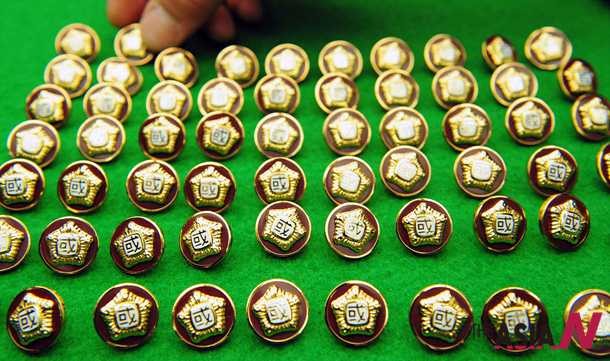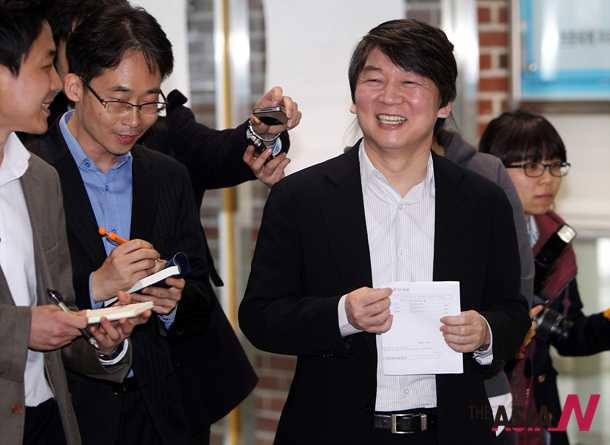What will be changed after the election?

The just-ended National Assembly election has elected a total of 300 new legislators. The election will have great significance in the Korean politics. First of all, the South-North relation is expected to improve markedly in any form. What attract people’s attention would be whether the major policies of the Lee Myung-bak regime will be changed drastically or not. The representative issue is the Korea-U.S. FTA.
In reflection of the fact that South Korea has already become a multicultural society, a North Korean defector and a naturalized foreign woman have been elected members of the parliament. Another interesting thing is that whether or not young new face lawmakers, elected by the proportional representation system, will be able to play an important role in increasing new jobs and lowering college tuition.
No one knows if the winner in the parliamentary election will also smile in the coming presidential election. When we recollect the recent political history of Korea, no party has ever won in two consecutive elections held in short interval.
Prof. Ahn Cheol-soo of Seoul National University (SNU), being considered a presidential hopeful, kept low-profile in the election. However, during the campaign period, he promised to sing and dance dressed in mini-skirt if “the voter turnout exceeds the level of 70 percent.” Of course, it was a joke he made with a view to raising turnout rate especially among the young people.
Election held when the level of people’s distrust on existing parties reached peak
This election was held when people’s distrust on existing political parties hit the highest peak. Although it has been a common thing to happen in South Korea, both the ruling and major opposition party have changed their names.The former Grand National Party changed its name to Saenuri Party and Democratic Party changed theirs as the Democratic United Party (DUP). It was part of frantic efforts to revive their tainted images.
The turnout of the voters in the election proved to be higher than that of previous one in 2008. However, it showed a shameful turnout rate in the vote of overseas Koreans, a system introduced for the first time in Korea. Only 2.48 percent of the 2,233,000 voters were found to have taken part in the vote. Considering the fact that some 29 billion won of government budget were spent for the vote, it has left many things to be changed in the future.
The frozen North-South relations will improve
After the election, relations between the two Koreas are expected to improve considerably. There are high chances of resuming the South-North dialogue and tourism to Mt. Kumkang that have been suspended under the MB regime. The sunshine policy, taken under the Kim Dae-jung regime, may also be revived. MB’s hard line policy toward the North Korea will no longer be sustainable. A large number of South Korean people are worried about deteriorating security situation on the Korean peninsula.
Something the ruling party can do, can’t do and won’t do.
As we well know, the opposition DUP has repeatedly pledged to repeal the Korea-U.S. FTA if they seize the power. They also promised to collect more taxes from the rich and thoroughly investigate various wrongdoings that have been committed under the MB government.
However, KORUS FTA was initiated by Uri Party, predecessor of the DUP, and it is something that can’t be broken unilaterally in connection with the interest of certain political party. It is said to be a nonsense to try to include such an important international agreement as a topic in the domestic party wrangling. That ‘s why many Korean people don’t believe that the opposition party, when they win, will live up to their campaign commitments. It is also considered impossible to collect more taxes from the rich just because welfare policies have increased the demand for money.
However, the level of political attacks against MB and Park Geun-hye will be intensified. It will be an important campaign strategy for the opposition camp at a time when they are preparing for the presidential election. It is something that is hard to give up for the opposition camp.
NK defector and naturalized foreign woman grab parliament seat
Cho Myung-chul, a North Korean defector, and Jasmine Lee, naturalized Philippine woman, have become parliamentary members through the proportional representation ticket of the Saenuri Party. Their elections are the reflection of the fact that the number of North Korean refugees exceeds 20,000 while foreign immigrants living in South Korea are more than 700,000.
The ratio of their number to total population is less than 2 percent at present. But there has been a rapid increase in the number of their influx into the South Korean society. Their advances to the National Assembly are expected to propell the institutional support for multicultural society in South Korea.
Expected changes from fresh young lawmakers
Both opposition and ruling parties nominated youth proportional representative as their candidates to meet the growing demand from the voters in their 20s and 30s now suffering from high college tuition and low employment rate. It attract people’s attention that whether they can play a major role in solving the problems of young generation or not.
However, those selected through the system have ‘inherent limitations’ to overcome because they have made political debut from the context of the party’s election strategy unlike their predecessors in the 1980s who made their way to the politics through their extreme struggles for democratization.
Will it be disadvantage to win in general election for the coming Presidential eletion?
Is the general election the prelude to the coming presidential election? Will it be true? Let’s see the case in 2002, just 10 years ago.
Local and presidential elections were held in June and December respectively in that year. The Grand National Party, then the opposition party, recorded a big victory in municipal election, but in the presidential election held six months late, Roh Moo-hyun from the then rling Demcratic Party won the election.
For this time, there are 8-month of time difference between the general election and the presidential election, slightly longer than 10 years before. Will it be possible for the winners of the just-ended election to win in the coming presidential election? South Koreans are evaluated as being hot-tempered and having a good sense of balance. The winners will be required to produce results good enough to satisfy people during the remaining eight months to repeat their win in the coming presidential election. However, it will not be easy considering the fact that the nation is besieged with difficult problems like the worsening economy and rising unemployment?
The meaning of Ahn Cheol-soo’s presence

During the election, Prof.Ahn Cheol-soo, keeping a low-profile, didn’t try to show his influence in the election. It can be interpreted that he has no will to run for the presidential election in December.
Of course, there is different opinions too. Some say that Ahn’s political rival is not a specific politician but the existing politics itself. So, it is not possible to evaluate him within the existing political framework. Considering the high vitality of Korean people, eight months are long enough to change the current presidential race as a whole.
Prof. Ahn is still a promising candidate for some South Koreans who dream of having a new political framework here. It is also true that not a few people expect him to be elected as the President in much the same dramatic way Roh Moo-hyun did in 2002. There are also people who think that Ahn may just try to sustain his political influence by supporting other candidates like Moon Jae-in.
Lee Sang-hyun, Choi Sun-hwa news@theasian.asia




History was made in South #Korea — a naturalized citizen of #Filipino descent Jasmine Lee was elected to parliament http://t.co/Qq8b73F6